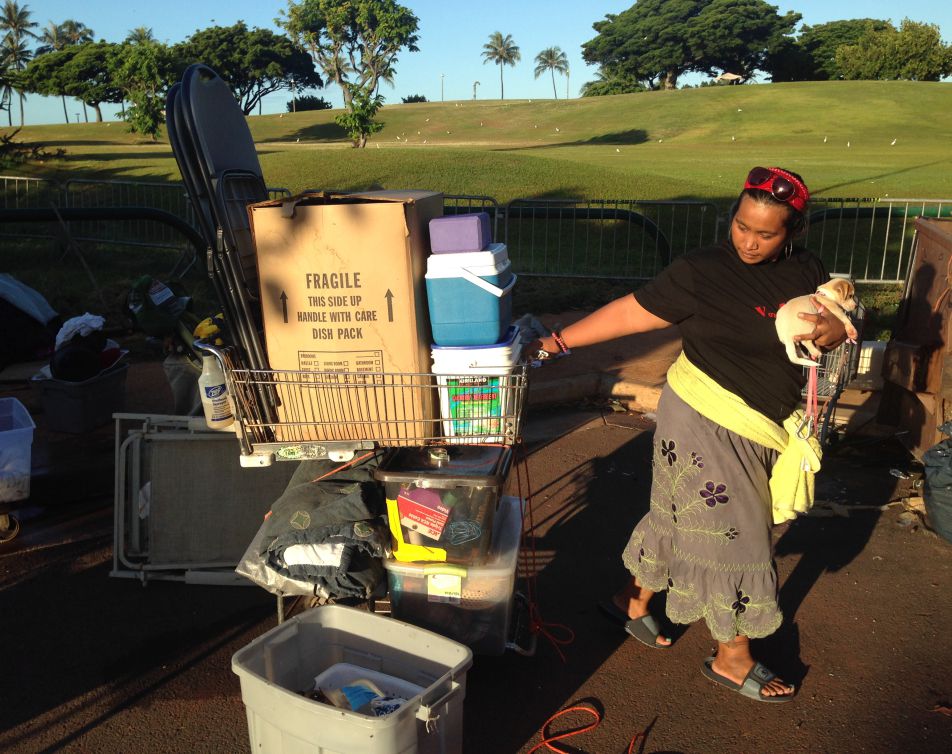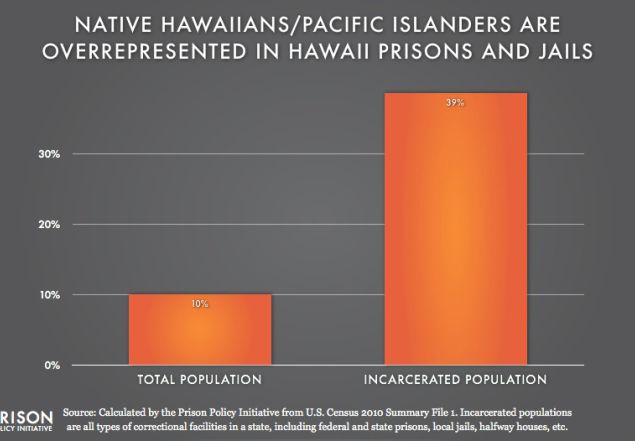
They Were There First, But Now Native Hawaiians Have Nowhere to Live
JOrge Rivas
The nation’s most ethnically diverse state is having a huge homelessness problem—but it’s the native people who were there first that are disproportionately ending up on the streets.
At last count, there were 7,260 homeless people in Hawai‘i, giving the islands of Aloha the highest rate of homelessness per capita of any state in the nation. Hawai‘i Gov. David Ige on Friday declared a state of emergency to help the state speed up the process of building a homeless shelter for families.
Between 2014 and 2015 Hawai‘i saw a 46% increase in the number of unsheltered families living in the streets, abandoned buildings, or in other places not meant for human habitation, Scott Morishige, the state’s homelessness coordinator told The Associated Press. The state also saw a 23% increase in unsheltered homeless individuals.
In the 2014 fiscal year 824 individuals used the state’s rapid rehousing program, about 2.6 times higher than the number served in 2013, according to the Center on Family, a research group at University of Hawai’i that looks at homeless program use with the Hawai‘i Department of Human Services.
Twenty-eight percent of individuals using the state’s rehousing program were Native Hawaiians or part-Hawaiians, even though they make up 10% of the state population in Hawaii.
Natives being disproportionately affected by homelessness isn’t unique to Hawai‘i.
Nationwide only 1.2% of the population self-identifies as American Indian or Alaska Native, but they represent 4% of persons residing in emergency shelter or transitional housing, according to the U.S. Interagency Council on Homelessness, the office coordinates the Federal response to homelessness.
Experts say American Indian, Alaska Native, and Native Hawai‘i people are all at high risk for many of the conditions that lead to and sustain homelessness, including disproportionately high rates of poverty, domestic and other violence, and behavioral health disorders, according to a 2012 report by the U.S. Department of Health and Human Services (HHS).
But a panel of American Indians experts working with the homeless population convened by HHS said historical trauma “may be one reason that indigenous people are disproportionately represented among populations experiencing homelessness.”

Loveleen Mori, 27, a homeless woman living in a large encampment in the Kakaako neighborhood of Honolulu,
holds her dog as she tries to figure out where to bring her belongings as city officials start to sweep the camp, Thursday, Oct. 8, 2015.
“Traumatic events spanning more than two centuries have affected multiple succeeding generations. Displacement, genocide, forced assimilation, culture/language suppression, and oppression which happened long ago may be expressed throughout the generations as a sense of powerlessness and hopelessness,” according to the 2012 HHS report that quoted experts working with the Native American homeless population in New Mexico, Colorado, California and Hawai‘i.
Another factor for homelessness among Native Hawaiians is their high rate of incarceration, said Darlene Hein, director of community services at Waikiki Health Center. Upon release many of them leave prison without access to reentry services or a place to live. The Department of Public Safety says that the state’s incarcerated population is 39% Native Hawaiian or part Native Hawaiian.

Nearly 100 years later, Native Hawaiian housing advocates say the distribution of land has not reached the groups the legislation intended to help.
So far 60,000 acres—30% of the total lands—have been issued to the general public, according to a report presented to Governor Ige by the Native Hawaiian Policy Center and other Native Hawaiian advocates.
There are currently 27,453 Native Hawaiians on the waiting list for land to live or work on, according to the Department of Hawaiian Homelands.Some of them have been there for “literally decades,” according to the Native Hawaiian advocates.
http://www.globalresearch.ca/they-were-there-first-but-now-native-hawaiians-have-nowhere-to-live/5484500
